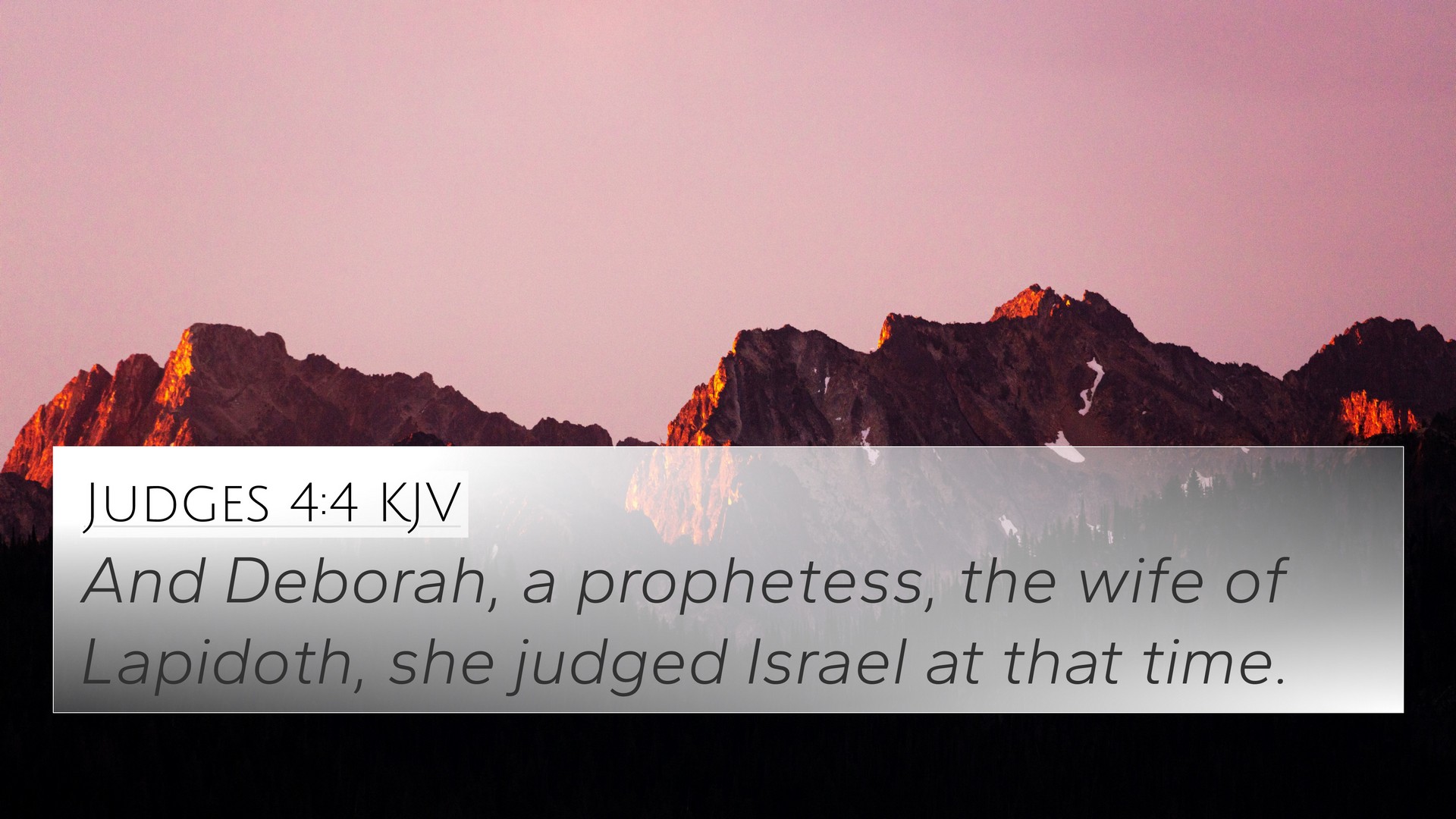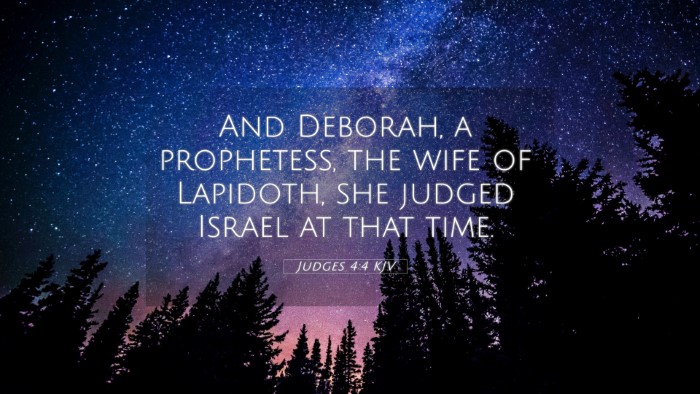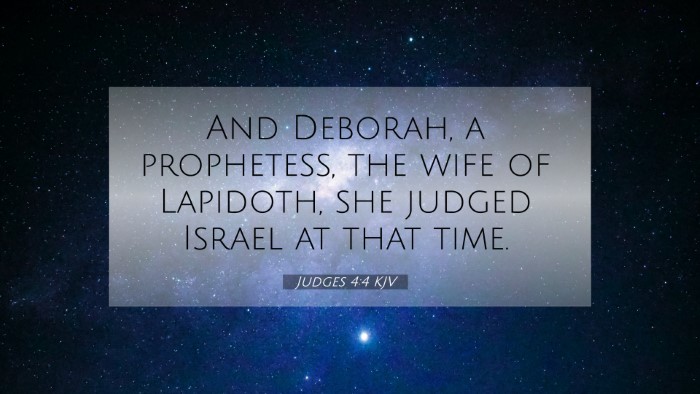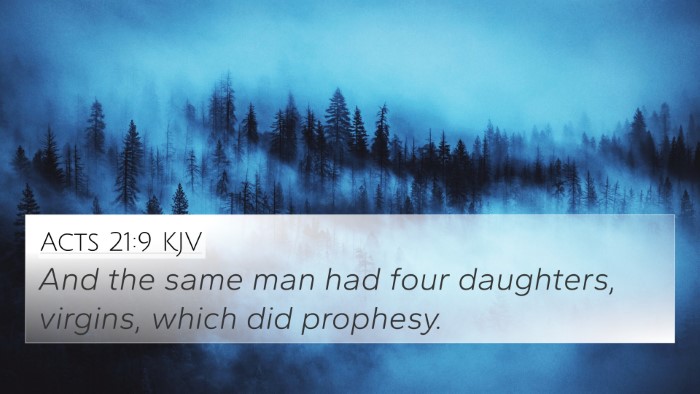Old Testament
Genesis Exodus Leviticus Numbers Deuteronomy Joshua Judges Ruth 1 Samuel 2 Samuel 1 Kings 2 Kings 1 Chronicles 2 Chronicles Ezra Nehemiah Esther Job Psalms Proverbs Ecclesiastes Song of Solomon Isaiah Jeremiah Lamentations Ezekiel Daniel Hosea Joel Amos Obadiah Jonah Micah Nahum Habakkuk Zephaniah Haggai Zechariah MalachiJudges 4:4 Similar Verses
Judges 4:4 Cross References
And Deborah, a prophetess, the wife of Lapidoth, she judged Israel at that time.
Uncover the Rich Themes and Topics of This Bible Verse
Listed below are the Bible themes associated with Judges 4:4. We invite you to explore each theme to gain deeper insights into the Scriptures.
Judges 4:4 Cross Reference Verses
This section features a detailed cross-reference designed to enrich your understanding of the Scriptures. Below, you will find carefully selected verses that echo the themes and teachings related to Judges 4:4 KJV. Click on any image to explore detailed analyses of related Bible verses and uncover deeper theological insights.
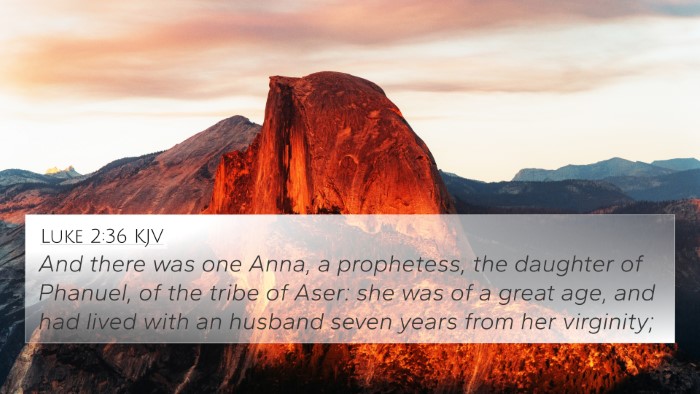
Luke 2:36 (KJV) »
And there was one Anna, a prophetess, the daughter of Phanuel, of the tribe of Aser: she was of a great age, and had lived with an husband seven years from her virginity;
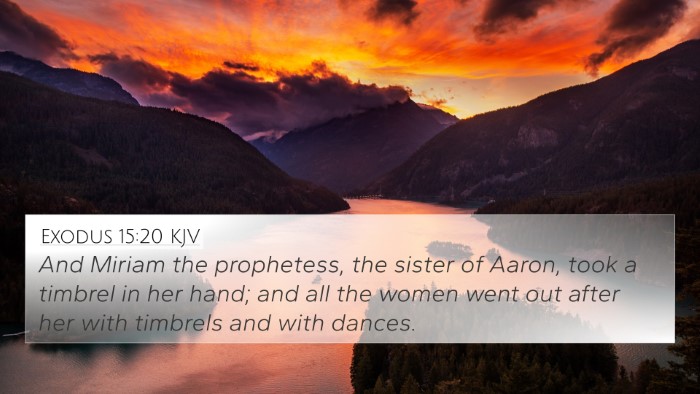
Exodus 15:20 (KJV) »
And Miriam the prophetess, the sister of Aaron, took a timbrel in her hand; and all the women went out after her with timbrels and with dances.
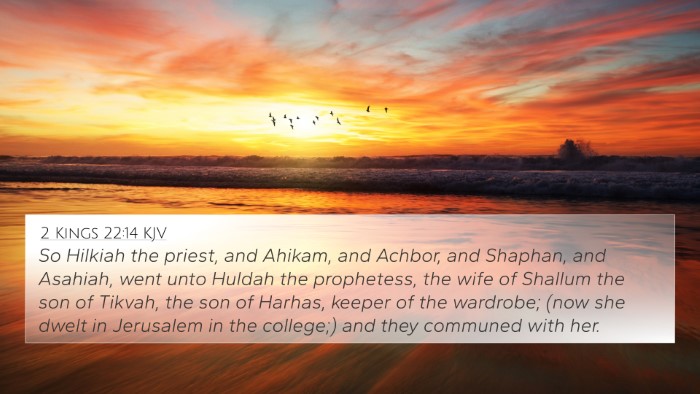
2 Kings 22:14 (KJV) »
So Hilkiah the priest, and Ahikam, and Achbor, and Shaphan, and Asahiah, went unto Huldah the prophetess, the wife of Shallum the son of Tikvah, the son of Harhas, keeper of the wardrobe; (now she dwelt in Jerusalem in the college;) and they communed with her.
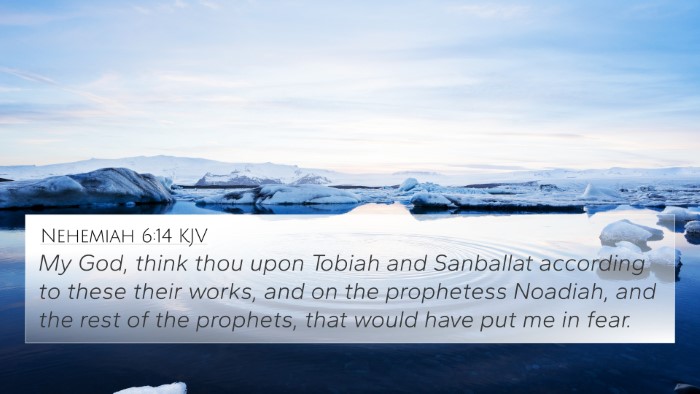
Nehemiah 6:14 (KJV) »
My God, think thou upon Tobiah and Sanballat according to these their works, and on the prophetess Noadiah, and the rest of the prophets, that would have put me in fear.
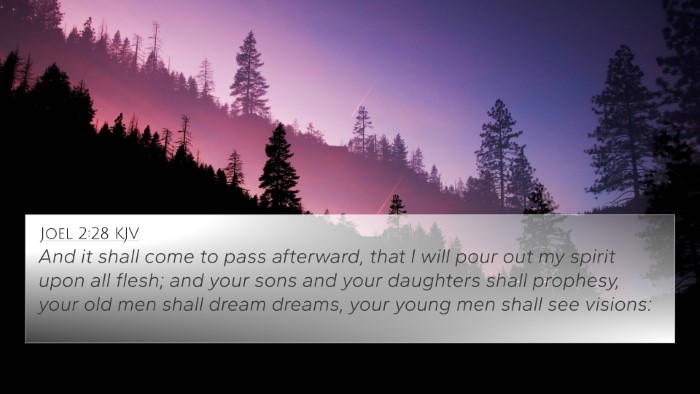
Joel 2:28 (KJV) »
And it shall come to pass afterward, that I will pour out my spirit upon all flesh; and your sons and your daughters shall prophesy, your old men shall dream dreams, your young men shall see visions:
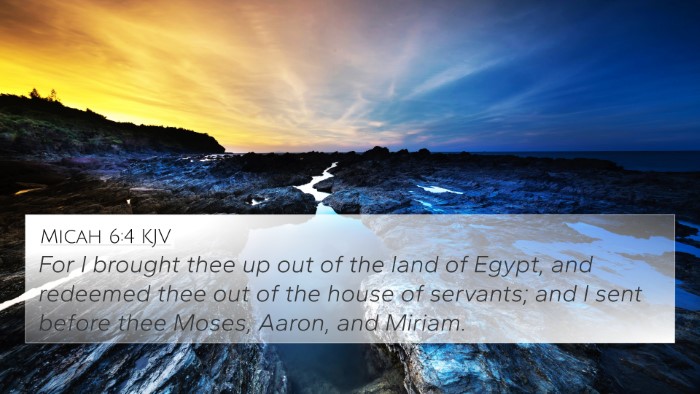
Micah 6:4 (KJV) »
For I brought thee up out of the land of Egypt, and redeemed thee out of the house of servants; and I sent before thee Moses, Aaron, and Miriam.
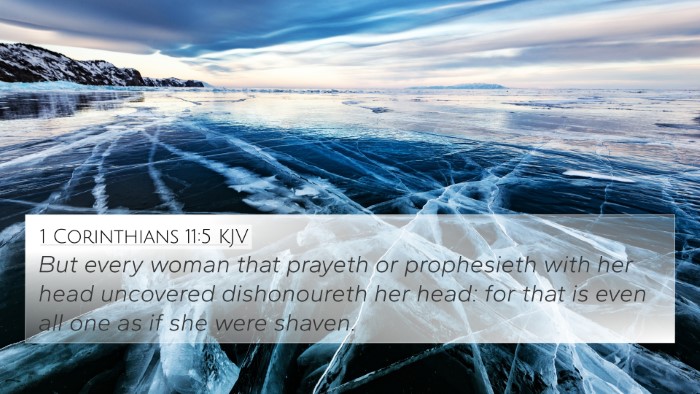
1 Corinthians 11:5 (KJV) »
But every woman that prayeth or prophesieth with her head uncovered dishonoureth her head: for that is even all one as if she were shaven.
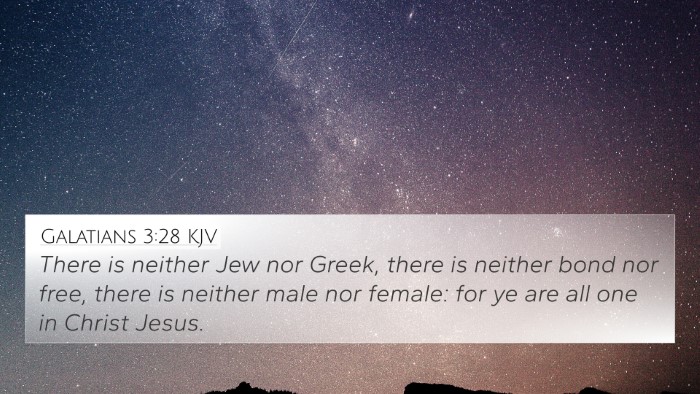
Galatians 3:28 (KJV) »
There is neither Jew nor Greek, there is neither bond nor free, there is neither male nor female: for ye are all one in Christ Jesus.
Judges 4:4 Verse Analysis and Similar Verses
Understanding Judges 4:4
Judges 4:4 introduces us to a pivotal character in the narrative of Deborah, the prophetess and judge of Israel. This verse states:
"Now Deborah, a prophetess, the wife of Lapidoth, was judging Israel at that time."
Verse Meaning and Context
This verse carries significant weight as it encapsulates both the leadership and spiritual authority of Deborah. She emerges as a strong figure in a largely patriarchal society, embodying both wisdom and guidance in tumultuous times.
Insights from Commentaries
-
Matthew Henry:
Henry emphasizes Deborah's role as a judge and a prophetess, noting that her appointment signifies God's choice to use a woman in a position of leadership at a time when Israel was in dire need of guidance. Her prophetic gifts proved crucial in directing the people back to faithfulness and action.
-
Albert Barnes:
Barnes reflects on the historical context of Israel, describing how Deborah's leadership came during a period of oppression from Jabin, the king of Canaan. This underscores the dual role she plays: spiritual leader and military strategist, bringing both hope and strategy to Israel’s plight.
-
Adam Clarke:
Clarke highlights the significance of Deborah's title as a prophetess, indicating that her prophetic role not only involved issuing judgments but also delivering messages from God, reinforcing Her importance in the spiritual life of Israel.
Thematic Connections
This verse sets the stage for understanding the dynamics of leadership in ancient Israel. It raises several themes pivotal in the Biblical narrative:
- Leadership and Authority: Deborah’s position challenges traditional concepts of authority, showcasing how God can empower anyone regardless of societal norms.
- Faith and Prophecy: Her role as prophetess positions her as an intermediary between God and the people, embodying themes of divine communication.
- Deliverance and Justice: The overall narrative in Judges revolves around cycles of oppression and deliverance, and Deborah’s leadership signifies hope and justice for the Israelites.
Cross-References and Connections
Judges 4:4 resonates with various other Biblical texts that highlight similar themes or character studies. Below are some key biblical cross-references:
- Exodus 15:20-21: Miriam, another figure of female leadership, also led the Israelites in worship, illustrating the role of women in spiritual guidance.
- 1 Samuel 10:6: The prophetic role continues with Samuel, recognizing the influence of divine selection in leadership.
- 2 Kings 22:14: Huldah, a prophetess during King Josiah's reign, also emphasizes the role of women in God’s plan for Israel.
- Romans 12:6-8: Spiritual gifts distributed among believers reflect God’s intention for diverse leadership roles in the church.
- Proverbs 31:26: Highlights the wisdom and teaching role of godly women, paralleling Deborah’s character.
- Hebrews 11:32-34: Discusses heroes of faith, referring to judges, including their deliverance roles, linking back to Deborah.
- Matthew 28:1-10: The women at the tomb acted in faith and obedience, similar to how Deborah calls for action in faith.
Understanding through Comparative Analysis
This verse invites scholars and laypersons alike to engage in comparative Bible verse analysis. The connections established between characters and themes throughout scripture enhance our understanding of God’s unwavering guidance.
Tools for Bible Cross-Referencing
Utilizing a bible concordance or a bible cross-reference guide can aid significantly in exploring deeper inter-Biblical dialogues, allowing for comprehensive thematic studies emerged from this verse.
Requesting further insights into how specific verses and themes relate promotes a deeper understanding of the Biblical narrative.
